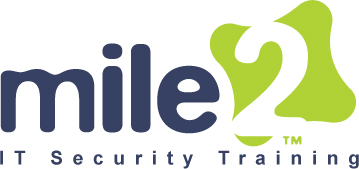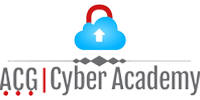C)RMFA: Certified Risk Manager Framework Analyst

Target group
- IS Security Owners
- Security Officers
- Ethical Hackers
- Information Owners
- Penetration Testers
- System Owners and Managers
- Cyber Security Engineers
Description
Mile2’s Risk Management Framework Analyst training quantifies the process of certifying, reviewing, and accrediting an information system by IT professionals. This course was created as a standard to measure the set of skills that specific members of an organization are required to have for the practice of certifying, reviewing, and accrediting the security of information systems. Specifically, this training was designed for the individuals who are responsible for creating and implementing the processes used to evaluate risk and institute security baselines and requirements. These critical decisions will be essential in making sure that the security of the information systems outweighs the potential risks to an organization from any internal or external threats.
Program
- Duration : 3 days
Module 0 : Introduction
- Logistics
- Introduction
- Class Rules
- The ISCAP Credential
- What information will be covered?
- Relationship to Other Processes
- Changes in Terminology
- Understanding the Risk Management Framework
- NIST SP800-37 Rev1
- Emphasis of SP800-37
- Multi-tiered Risk Management
- The Risk Management Framework What information will be covered?
- Summary
Module 1 : Introduction to the RMF
- What’s covered in this domain?
- The RMF
- The pillars of CIA
- National Strategy on Cybersecurity
- Cyber Attacks
- Federal Policy
- Actions of Executive Agencies
- Federal Policies
- E-Government Act of 2002
- FISMA
- Applying NIST
- Special Publications 800-39
- Purpose NIST SP 800-39
- Information Systems
- What is Risk?
- Types of Risk
- Security Risk
- Information Security Risk
- Core Documents
- Risk Management
- Risk Management Process
- IS Risk Management
- Threats
- Objectives of the RMF
- Effective Risk Management
- Risk Tolerance / Acceptance
- Risk Assessment
- Risk Response
- Risk Monitoring
- Risk Management Process
- Frame Risk
- Multi-tiered Risk Management
- Key Parts of Tier 1
- Tier 2 Activities
- Key Parts of Tier 2
- IS Requirements Integration
- Tier 3
- Developing Trust
- Trustworthiness
- Frame Risk
- Frame Risk Activities
- Risk Assessment
- Assess Risk Activities
- Threat
- Vulnerability
- Likelihood
- Adversarial Likelihood
- Impact
- Aggregation
- Quantitative Risk
- Qualitative Risk
- Semi-Quantitative
- Risk Assessment Process
- Step 1 – Preparing for the Assessment
- Conducting the Risk Assessment
- Conducting the Risk Assessment
- Communicating and Sharing Risk Assessment Information
- Maintaining the Risk Assessment
- Risk Management Process
- Risk Responses
- Risk Response Strategy
- Risk Management Process
- Monitoring Risk
- Risk Monitoring Activities
- Moving to the RMF
- The RMF
- Security Control Assessment
- Applying the RMF
- Applying the RMF cont.
- The RMF Process
- Summary
Module 2 : The Software Development Life Cycle
- The RMF Process
- Purpose of SP800-37
- Definitions
- Guidelines for Implementing SP800-37
- Relationship with other SPs
- Tiered Risk Management Approach
- Steps of the RMF
- Effective Controls
- The SDLC
- Balancing all Considerations
- The Phases of the SDLC Security Requirements
- Benefits of Early Integration
- Integration
- Integrated Project Teams
- Role of ISSOs
- Reuse of Information
- Benefits of Reuse
- Identifying Boundaries
- Well-defined Boundaries
- Correct Boundary Size
- Size of Information System Boundaries
- Key Words in Boundary Determination
- Software Applications
- Boundaries for Complex Systems
- Complex System
- Boundaries What is Security?
- Allocation of Controls to Subsystems
- Types of Controls
- Architecture and Controls
- Common Controls
- Control Selection
- Security Control Allocation
- Summary
Module 3 : RMF Step 1
- The RMF Tasks
- RMF Tasks
- Milestones
- Sequence
- The Last Step
- Legacy Systems Level of Effort Required
- The RMF Process
- Security Categorization
- Categorization
- Map Impact Levels
- Influence of Architecture
- Accuracy of Categorization
- Impact–based Categorization
- Categorization Levels
- Format of Categorization
- Categorization
- Appropriate Controls
- SSP
- Information System Description
- Information System Registration
- System Registration
- Milestone Checkpoint # 1
- Summary
Module 4 : RMF Step 2
- Common Control Identification
- Common Controls
- Supplementing Common Controls I
- Inheriting Controls
- Common Control Providers
- Documentation of Common Controls
- Security Control Selection
- Selection of Controls
- Control Selection
- Preparing for Monitoring
- Monitoring Strategy
- Control Monitoring
- Effective Monitoring
- Continuous Monitoring
- Security Plan Approval
- Milestone Checkpoint # 2
Module 5 : RMF Step 3
- The RMF Process
- Security Control Implementation
- Security Controls
- Security Control Assurance
- Common Controls
- Assessments
- Security Control Documentation
- Documentation
- Functional Description
- Milestone Checkpoint #3
Module 6 : RMF Step 4
- The RMF Process
- Assessment Preparation
- The Assessment Plan
- Purpose of the Plan
- Type of Assessment
- Approval of the Plan
- External Providers
- Assessor Competence
- Assessor Independence
- Security Control Assessment
- Control Assessments
- Timing of Assessments
- Assess and Recommend Findings
- Incremental Assessments
- Access
- Security Assessment Report
- Assessment Report
- Determination of Risk
- Assessment Results
- Remediation Actions
- Report Findings
- Response to Findings
- Reassessment
- Updating the Security Plan
- The Updated Plan
- Optional Addendum
- Milestone #4
Module 7 : RMF Step 5
- The RMF Process
- Plan of Action and Milestones
- PoA&M
- Milestones
- Monitoring the PoA&M
- Documenting Weaknesses
- PoA&M Not Required
- Security Authorization Package
- Common Controls
- Updating the SSP
- Risk Determination
- Assess Current Security State
- Risk Management Strategy
- Risk Acceptance
- Explicit Acceptance of Risk
- Risk Decision
- The Authorization Decision
- Communicating the Decision
- Authorization to Operate
- Termination Date
- Interim Authorization to Test
- Interim Authorization to Operate
- Type Authorization
- Examples of Type Authorizations
- Authorization Approaches
- Authorization Rescission
- Denial of Authorization
- Authorization Decision
- Document The Decision
- Termination Date
- Decision Document
- Change in Authorizing Official
- Acceptance of Previous Authorization
- Milestone Checkpoint #5
- The RMF Process
- Information System and Environment Changes
- Constant Change
- Controlling Change
- Record Changes
- Impact on Security
- Impact on Controls
- Documenting Impact
- Reauthorization
- Ongoing Security Control Assessments
- Ongoing Monitoring
- Continuous Monitoring
- Control Monitoring
- Ongoing Remediation Actions
- Updated Assessments Remediation Actions
- Reassessing Controls
- Key Updates
- Updating the SSP
- Updating the PoA&M
- Supporting Continuous Monitoring
- Security Status Reporting
- Reporting to the Authorizing Official
- Security Status Reports
- Frequency of Reporting
- Reauthorization
- Ongoing Risk Determination and Acceptance
- Reviewing Reports
- Metrics and Dashboards
- Maintaining Security
- Information System Removal and Decommissioning
- Disposal Milestone
- Checkpoint #6
Goal
Upon completion, the Certified Professional Ethical Hacker candidate will be able to competently take the exam.
Prerequisites
- (Any one of the following) This is an advanced look into how the RMF applies to government systems.
- 4-5 years of information systems security management is suggested (or equivalent education).
Tarif
- 2100 €
- Langue : Anglais
- Niveau : Level 400
- Organisme de certification : Mile2
- Certification : Oui
- Accesibilité : Oui
- Durée : 3 jours
Information importante :
Nos formations ne sont pas inscrites au Répertoire National des Certifications Professionnelles (RNCP), mais elles sont conformes aux exigences du Répertoire Spécifique (RS).
